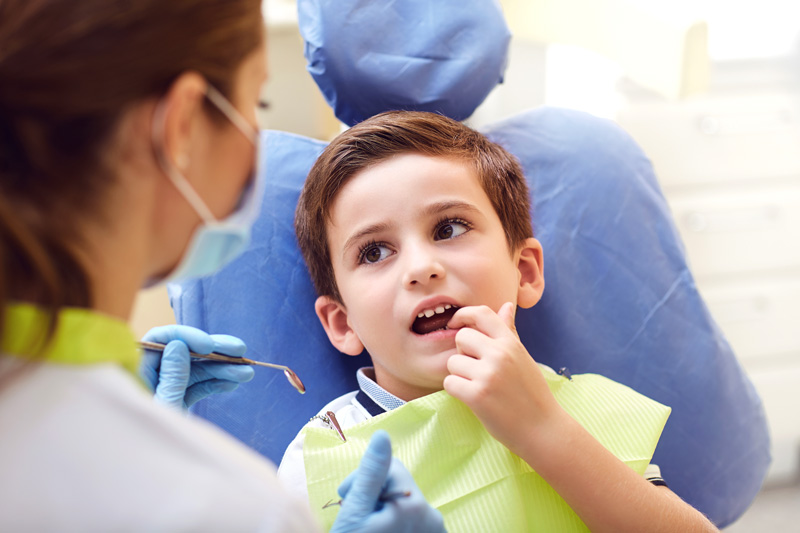Individuals with autism spectrum disorder (ASD) face many dental care challenges. As a result, ASD patients continue to experience obstacles in accessing quality dental care. According to the Centers for Disease Control and Prevention (CDC), about 1 in 36 children in the United States has been diagnosed with ASD. This is an increase from 2018 studies that showed an incidence of 1 in 44 children, which means that dental providers need to be equipped and prepared to provide appropriate care for this growing population. It also means patients, their families, and caregivers will need to find the appropriate dentist and health care team to facilitate care safely and humanely for ASD patients.

One of the biggest challenges for patients with ASD is sensory issues. Many patients with ASD are hypersensitive to touch, sound, and light, which can make dental exams and cleanings uncomfortable or overwhelming. Dr. Michelle Harmon, a pediatric dentist in Watkinsville, Georgia advises “The key part in tailoring a treatment approach for a patient with autism is to work closely with the caregivers to determine which methods may work best for their child. Some patients may have difficulty with noises and could benefit from wearing headphones during their appointment or avoiding a loud suction by using gauze instead to wipe off the teeth after a cleaning. The taste and texture of toothpaste can also be a challenge, and we encourage some patients to bring their own toothpaste from home or to choose one of our “no flavor” options. For children and adolescents where the sound and sensation of the handpiece is stressful, there are many minimally invasive cavity treatment options that can allow us to avoid a “drill and fill” approach. Working in collaboration with the parent as a team allows is paramount.”
Molly Masselli and The Bridge of Georgia therapists offer several approaches to managing sensory issues.” Patients often deal with hand fidgeting and tactile sensation issues. Squish balls, infinity cubes, spinners, soft pillows to squeeze, and sequin pillows to rub may be helpful. They may also have temperature sensitivities. Blankets, weighted blankets, and warming blankets may be beneficial. Patients may also present with auditory issues. Noise-canceling headphones, headphones with music, and sound machines may prove helpful. Additionally, TV with captions on may help patients focus their vision. However, negative hyperfocus can be a problem for patients. Describing procedures in detail, verbalizing that the patient is safe, and forewarning the patient about loudness, vibrations, etc. can be helpful. Also, instructing the patient to lift their hand whenever they need a break will allow the patient to feel a sense of control that can be comforting.”
A significant dental care challenge that many families find with ASD patients is difficulty with oral hygiene at home and seeking out a dentist once it is apparent the patient has cavities.
“Patients with autism spectrum disorder may have heightened sensitivity to sensory stimuli, which can make routine dental procedures challenging,” said Dr. Jayni Bradley, a pediatric dentist based in Watkinsville with years of experience treating patients with ASD. “I enjoy the challenges. It seems to come naturally to me since I grew up observing how my mom interacted with her special needs brother. Every person is so different, and their care needs to be customized for them. We take extra time to evaluate a patient and plan accordingly. Many times, extra time and patience are all that’s needed. Our goal is to take care of the disease in a calm, compassionate manner. There are times when the use of a dental anesthesiologist is needed to allow the child to tolerate multiple procedures without being traumatized.”
Communication difficulties are another major challenge for patients with ASD. Patients with ASD may have difficulty communicating their needs and understanding instructions from dental staff. This can make it hard for dental providers to determine what treatments are needed or to explain procedures to patients. “Communication is key when working with patients with autism spectrum disorder,” remarked Dr. Alyson White , a general dentist in Athens, Georgia who treats patients with ASD. “Our patients with mild/moderate ASD do very well with repeated instruction and sometimes shorter appointments. We try to be patient and never push them to anything that is uncomfortable. Sometimes it means rescheduling or just talking through things in great detail. For patients that cannot tolerate dentistry while conscious, there are options for anesthesia in hospitals, surgery centers, and dental offices that hire anesthesiologists to come to the practice.”
Anxiety and fear are also common issues for patients with ASD when seeking dental care. Patients with ASD may feel anxious or fearful about dental procedures, especially if they have had negative experiences in the past. This can make it difficult for dental providers to build trust and establish a positive relationship with patients. “Dental visits can understandably be very intimidating for parents and difficult for children with ASD.
Successful visits are possible through early intervention and repetition so parents should try to schedule their first appointment at an early age, and return to their dental home often,” added Dr. Ben Popple, a Newnan-based pediatric dentist who specializes in treating patients with ASD. “We may need to use techniques such as positive reinforcement, distraction, or sedation to help patients stay calm and cooperative during dental procedures.”
Behavioral issues can also be a challenge for patients with ASD seeking dental care. Patients with ASD may have difficulty sitting still, following directions, or cooperating with dental staff during exams and procedures. This can make it hard for dental providers to perform procedures safely and effectively. “We need to work with patients and families to create a calm and reassuring environment and use techniques such as distraction or positive reinforcement to help patients stay calm and relaxed during dental procedures, said Dr. Trudy Frazer, a pediatric dentist based in Smyrna and Douglasville who worked extensively with patients with ASD in her pediatric specialty residency. “If this fails, we will refer the patient to a hospital that provides dental services or a dental practice that hires a dentist or physician anesthesiologist to come in a provide sedation for the patient”
Limited access to care is another challenge that families and patients with ASD may face when seeking dental care. Many dental providers may not have the training or resources needed to provide appropriate care for patients with ASD. This can make it difficult for families to find dental providers who are equipped to meet their needs. “Access to care for patients with any condition that prevents them from tolerating dentistry with local anesthesia or mild sedation and local anesthesia is a problem that can be likened to being on a life raft in the ocean, you’re surrounded by water, but you can’t drink any of it,” said Dr. John Hansford Jr., a pediatric dentist and dental anesthesiologist who works with patients with ASD. “Historically, there have been anesthesia providers and dental providers, but they haven’t been able to work together for financial, legal, or myriad other external factors. Thankfully, northeast Georgia has several avenues for compassionate care: A few dentists have anesthesiologists come to their office, and a couple of dentists have surgery center and hospital privileges to take their patients in for anesthesia services to facilitate their dental surgery. Patients just have to go through the headache of searching for participating dentists on patient insurance websites, and then calling all the offices to discover the doctor’s training, policies, and protocols in regard to ASD patients. This is probably the most accessible, safe, and affordable care there has ever been.”
Overall, patients with ASD and their families face a range of challenges when seeking dental care. Dental providers who work with patients with ASD need to be equipped and prepared to address these challenges, from sensory issues to communication difficulties. By working together, dental providers, other healthcare providers, patients, and families can ensure that patients with ASD receive the dental care they need in a safe and supportive environment.
Known Georgia dentists that are experienced treating patients with ASD and accepting new patients:
- Jayni Bradley at Athens Area Pediatric Dentistry
- John T. Hansford Jr. at Greenpoint Pediatric Dentistry
- Michelle Harmon and associates at Athens Dentistry for Children
- Sam Kwon and associates at Kwon Pediatric Dentistry
- Merissa Nelms at Hilsman Health Center
- Ben Popple at White Oak Pediatric Dentistry
- The Dental Bridge of Georgia
Other dentists may be experienced with caring for patients with ASD. Feel free to reach out to any office you’re interested in to inquire about the services they provide.
Dr. John T. Hansford Jr., is a double board-certified specialist in pediatric dentistry and dental anesthesiology and is the Owner, Pediatric Dentist and Dental Anesthesiologist at Greenpoint Pediatric Dentistry. He practices in Watkinsville, Athens, Lilburn, and Newnan, Georgia. For more information, email dr.john@greenpointpediatricdentistry.com.





My 41-year-old autistic son (with OPHN1 syndrome), is missing his 4 top front teeth due to many years of vomiting and lack of brushing in his previous group home. His dentist feared that, even if we could raise the money for implants, our son might try to pull them out due to his sensory issues. Any ideas of how to solve this?
Hi and thanks for your question. This is a difficult situation for you and your family. The most challenging aspect is post-operative behavior. Counselors and therapists that can assist you with behavior modification and prosthesis acceptance may be helpful in preparing your son before surgery. A less invasive option might be a removable partial denture. This will be a new device in oral cavity that you can use for acceptance training. Generally, where are y’all located?
[…] Dentists using toothpaste with an unpleasant texture or flavor […]